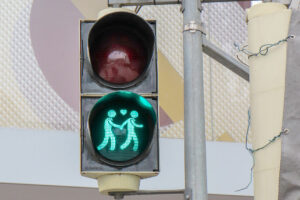The myth of LGBT discrimination

An argument that the LGBT activists push out is the “discrimination” they suffer from the rest of society. That because of such unequal treatment they have to bear, additional legislation is needed to allow them the civil rights protection afforded to everyone else. The question, however, is: Do such allegations of discrimination have any basis?
The point being made here is not that no discrimination exists. Discrimination can exist after all, provided such is legally done within the ambit of the “equal protection” concept under our constitutional system (i.e., unequal treatment between those of different classes). Discrimination can also exist in the sense that everybody gets discriminated against, to the point that they are of such levels that they do not justify a policy response.
With regard to the latter, let us see for example Senate Bill 689 (2022, the “Anti-Discrimination Act”), which alleges that: “According to a United Nations (UN) study, 30% of LGBT in the country reported being harassed, bullied, or discriminated against by others while at work because of their sexual orientation and gender identity or expression (SOGIE). The same study also said 21% of Filipino respondents believed that they were denied a job because of their SOGIE.”
The problem with the foregoing charges is that they are based on subjective self-perception. If indeed the LGBT are being harassed or discriminated against in the workplace or denied employment, it would have been the simplest thing to look at the Department of Labor and Employment or National Labor Relations Commission records to determine the extent. If indeed the LGBT are being persecuted, the Philippine National Police or National Bureau of Investigation records would bear the extent of the crimes committed against them. That no such evidence was proffered casts suspicions on the credibility of the “discrimination” argument.
Indeed, if workplace discrimination were true, then one reliable indicator would be income levels and in this regard the data goes against the idea of discrimination: US studies found that the LGBT community “earn more, save more, have less debt and are better prepared for retirement, according to a Prudential survey of more than 1,000 LGBT respondents. Respondents not only reported significantly higher annual incomes — $61,500 compared with the national median of $50,054 — and had $6,000 more in household savings. They were even slightly more likely to have jobs in the first place, with an unemployment rate of 7% versus the national rate of 7.9%.” (“Gay people earn more, owe less”; CNN, 2012)
Even more recent studies demonstrate that not only do the LGBT community earn equally with the rest of the population but they benefit from “a 10% premium, meaning that gay men in recent years earned substantially more than straight men with similar education, experience, and job profiles.” (“Gay Men Used to Earn Less than Straight Men; Now They Earn More”; Harvard Business Review, 2017)
In fact, previous studies that tried to show discrimination against the LGBT are now being considered suspect: “The measurement, analytic, and interpretive decision-making displayed in much (though certainly not all) of the LGBT discrimination and well-being literature is troubling, indicative of a lack of standards, poorly defined concepts, impressionistic conclusions derived from small numbers of interviews, the politicization of results, and the overall novelty of the field.
“With society’s recent changes in norms and values, there is little evidence that chronic, repetitive, and intense discrimination based on sexual orientation remains a health issue. Moreover, the ‘minority stress’ perspective privileged in such research opposes the idea that gays and lesbians should be seen merely as victims of social stress. They — like any other minority group — have long drawn strength from association and from establishing alternative structures and values, all of which temper the effect of discrimination.” (“Weak Data, Small Samples, and Politicized Conclusions on LGBT Discrimination,” Public Discourse, 2020)
While it may be true that discrimination against the LGBT happen in other countries, for example 64 countries have laws criminalizing homosexuality, the Philippines is not one of them. In fact, pro-LGBT proposed legislation, such as the abovementioned SB 689, admit that “Pew Research Center says 73% of adult Filipinos say homosexuality should be accepted [and that] the Philippines is the second most gay friendly country in the Asia-Pacific.”
Congress alone gives the lie to the discrimination argument: a known transgender has been elected to the House and an LGBT party-list registered to run for a seat. Members of the LGBT community are prominent members of business, the academe, and showbusiness — with many of them occupying top positions and enjoying high earnings. And the political and social influence of the LGBT clearly goes beyond its 2-5% share of the population.
In fine, the words of legal philosopher John Finnis is of great relevance: “Reality is known in judgment, not in emotion. In reality, whatever the generous hopes and dreams and thoughts [will always have to give way to what is actually there].”
Jemy Gatdula is a senior fellow of the Philippine Council for Foreign Relations and a Philippine Judicial Academy law lecturer for constitutional philosophy and jurisprudence
https://www.facebook.com/jigatdula/
Twitter @jemygatdula




